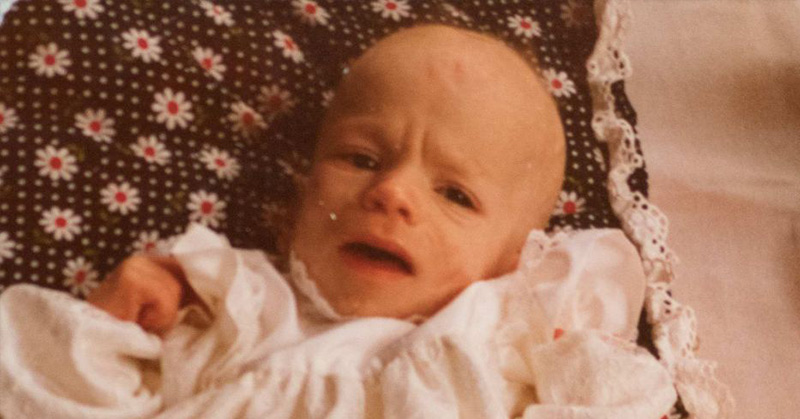There’s nothing a parent won’t do for their child. Some say that phrase, or some form of it, as a given fact. They believe a parent’s love is unconditional, but they don’t explore that concept further. On the flip side, those with harsh childhoods might dispute these claims. However, the story of this father’s fight for his disabled daughter restores faith in the concept of unlimited parental love. Russel Milne battled for his daughter, Yoey, for 33 years.
Yoey’s Misdiagnosis
Yoey Milne’s life was difficult, and her challenges began soon after she was born. In 1984, Yoey was suffering from severe malnourishment. The doctors at the Royal Brisbane Children’s Hospital told her parents that their daughter had a rare genetic disease causing this and they did not expect her to live much longer. Mr. Milne was managing a farm on Queensland’s Darling Downs and was sending the money home. He was the family’s only income and was unaware of how unwell his baby had become while he was away.
The doctors informed him that her disease had affected the mitochondria in her cells. Milne and his wife took Yoey home, dressed her in a little dress from her mother’s wedding gown, and brought her to church to be christened. They were bracing themselves for the worst, but Milne had refused to give up. “I said, ‘No I’m not going to let her die’.” He arranged Yoey’s admission to the Sydney Children’s Hospital. After a few days, the medical staff claimed the source of her illness was not from genes, but abuse. It was at this time that Yoey’s mother was diagnosed with Munchausen syndrome by proxy, a condition where a caregiver purposely makes the child sick for attention. Today it is known as Factitious disorder imposed on another (FDIA).
When Yoey was separated from her mother, the baby began to gain weight. Milne was appalled. He had no idea this had been going on. Later he learned that Yoey’s condition could have also been a result of her Smith-Magenis syndrome, which she was diagnosed with much later in life.
Into Foster Care
After the mother’s Munchausen diagnosis, Yoey and her sibling were placed in foster care. Thus, began three decades of Mr. Milne fighting for his daughter’s return. Although there was no evidence connecting Milne to his daughter’s mistreatment, he was penalized for failing to notice his wife’s abusive behavior. Milne battled to prove his capabilities as a father and won in 1986. He abandoned his job at the farm to start a life of paperwork, courts, and government departments to get his kids back. “I remember in those days I would write everything on a typewriter and if you got one letter or word wrong, they’d send it back to you and you’d have to do it all over again,” he said.
He spent two weeks in an in-house program run by Montrose Child Protection Centre so they can analyze his parenting abilities. “Then they went through me with a fine-tooth comb,” he remembered. The two weeks were worth the struggle: he gained custody of his oldest child and the third who was born during this grueling process. However, Yoey remained in the foster care system, in a home with seven other children. “I still to this day don’t know why she wasn’t sent to Montrose to be with me,” Milne said.
Yoey was two when she began developing symptoms of autism, epilepsy, and other delays attributed to her malnourishment as an infant. She was apparently settled with her foster family. Around this time, Milne left his wife and moved to Tasmania to care for his other two children. He refused to give up his fight for Yoey. He saw his daughter once in 1991 and continued to send letters to the government, pleading for her return. He received no responses. Without any news, he feared that Yoey may have died. “We kept sending stuff but we never got any reply. I made her a jumper. They just cut us off,” Milne said. He felt hopeless.






